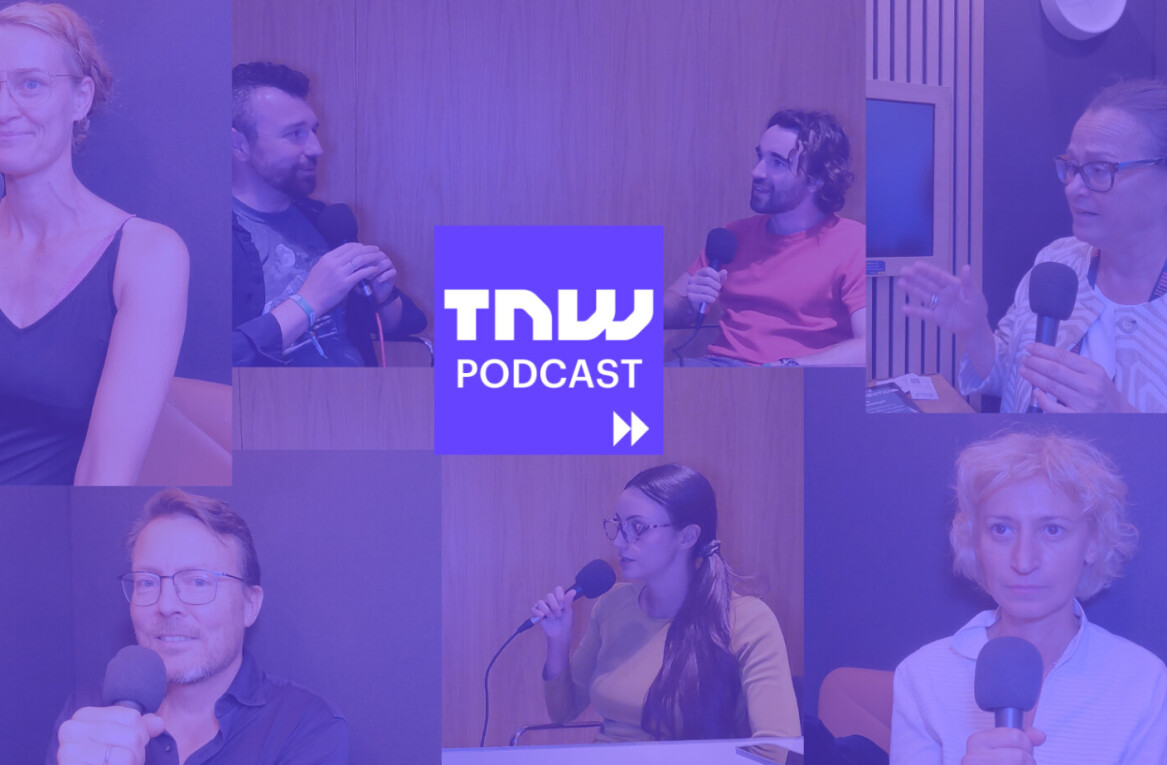
 Welcome to The Next Web’s Weekly Recap.
Welcome to The Next Web’s Weekly Recap.
Perhaps the lenses with which I see the Internet world are somewhat biased towards Google as a heavy Google user but I couldn’t help but have this week’s recap be all about Google. Google dominated the headlines this week with the announcement of Google Public DNS, the release of a new tool to assist sites in implementing paywalls, a new homepage design and the dropping of Gears in favor of HTML5. Not to mention the release of the 2009 Year-End Google Zeitgeist that seems to always make me question the prospects of humanity.
 Introducing The Next Web Podcast
Introducing The Next Web Podcast
I thought I would take the first part of this recap to plug our new weekly podcast. In many ways, it will compliment this weekly recap. Every week a handful of our writers from around the globe will get together to discuss the weekly tech news from their unique geographic perspective. Stay tuned for more information about a formal home for the podcast here on The Next Web as well as subscription links. If you have an idea for a jingle for the show feel free to get in touch with Fawzi Rahal.
 All about the Google
All about the Google
Google Public DNS
The most significant Google news this week was the announcement that Google was launching Google Public DNS. DNS is the technology that associates the domain names you type into your address bar to the site’s IP address. Google’s goal in launching the service is to provide speed and security. The DNS server you currently use depends on your ISP. However, many have long opted to use OpenDNS. This move clearly threatens OpenDNS’s business which places ads on the landing page you receive if the DNS isn’t able to resolve your domain (i.e. you misspell the domain name). OpenDNS’s CEO was quick to respond to the announcement by offering some FUD as to why allowing Google to become more vital to our everyday Internet lives could be a dangerous move. Personally, I’m excited about Google Public DNS and don’t share those fears.
 News Paywalls
News Paywalls
This week saw the launch of Google’s ‘First Click Free’ policy. The service will give publishers the ability to limit the amount of free news readers can access during a particular time frame. This announcement continued the debate over the paywall issue that was started after Murdoch threatened to remove Newscorp from Google back in November. The latest news this week shows that Newscorp could already be removing itself from Google.
 Search vs Content
Search vs Content
Google continues to blur the line between providing search and providing content. In October they announced that songs would be able to be previewed directly on the search page. While Google does partner with music sites for this feature, it certainly hinders music advertisers who use AdWords but are not part of the partnership. This week, Google once again blurred the lines between providing search and providing content as they announced that they will be launching a UK property portal. Results from the portal will likely be served up at the top of results pages if relevant to the search query. Like music search, this will severely disadvantage advertisers that are not part of the deal.
 Google Drops Gears in favor of HTML5
Google Drops Gears in favor of HTML5
What I love about Google is there desire to play nice with everyone and build their products and services on open platforms. This week was the perfect example of this ‘Don’t be evil’ strategy as they announced they were ditching their proprietary Google Gears technology in favor of HTML5. The most significant feature of Google Gears was the offline capabilities it brought to web apps such as Gmail. I’m really excited about HTML5 and hope that it will serve to reduce the need for proprietary plug-in technologies such as Flash and Silverlight.
 Speed, Transparency and Language
Speed, Transparency and Language
This week Google launched a Site Performance tool to help web developers evaluate the load time of their site and give suggestions on how to make it faster. Google also did their part by creating a slimmed down and faster version of YouTube and also launching a clutter free version of their homepage. Transparency in Google analytic data also became a reality as SeeTheStats launched a feature that allows websites to publish their traffic data. Finally, Google had a couple announcements on the language front. The first was the launch of Google Dictionary, which provides definitions and synonyms in almost thirty different languages. Google also implemented their “Translated search” tool into the main Search Options panel.
 Google Zeitgeist 2009
Google Zeitgeist 2009
Every year Google releases a Year-End Zeitgeist that attempts to capture “the spirit of the times”. The Zeitgeist is created by aggregating and analyzing the billions of queries people typed into Google search during the past year. You can find the 2009 Google Zeitgeist here.
 Facebook reaches 350 million users, adds privacy controls
Facebook reaches 350 million users, adds privacy controls
This week Facebook announced in an open letter by founder Mark Zuckerberg that Facebook had reached 350 million users. The even bigger news was the manner in which the structure of Facebook privacy controls are going to change. Facebook announced the elimination of regional networks from which many of the current privacy controls are dependent on. Instead, a new and simpler privacy control dashboard will take its place. In addition, the new privacy controls will allow users very granular control over their privacy of specific posts or pieces of content.
Quick Hits
- Favit launched an iPhone app that brings you the top favorited tweets from Favstar.fm to your iPhone.
- Gmail addict? If so, you need the ‘Gboard’ – the keyboard customize for heavy Gmail users.
- Eventarc, a ticketing and event registration startup aimed to compete with the likes of Eventbrite has publicly launched after more than two years of development.
- Apple will never allow this: Android has a Porn Store.
- Popular iPhone Tweetie 2 got an important update – added geolocation, the new retweets and lists.
- Want to get on Digg? Alex tells you how.
- While Apple rumors focus on Tablet, Boris lists his predictions and hopes for the next iPhone.
- Twitter’s new mobile version of their site is now live.
- I’m a huge fan of the music creation iPhone app Bloom but this takes it to another level – the world’s first iPhone orchestra performs live.
- If you’re a music fan, make sure to check out Whosampled, which answers music’s most frustrating question.
- There will be no Crunchpad after all. Arrington’s Project Implodes.
- TweetDeck, the popular desktop app for Facebook and Twitter added a bunch of new features on Monday including support for Twitter’s new retweet, geolocation, Twitter lists as well as support for LinkedIn. Download the latest version here.
- Twitter’s first augmented reality iPhone app called Twitter 360 was released this week.
- Gomeme leverages Twitter’s geolocation API to answer “what is happening where?” – location based trends. Read about it here.
- The AT&T vs Verizon map saga hopefully came to an end as AT&T dropped it’s lawsuits against Verizon.
- The mobile payment system Square launched this week with much excitement. The company is co-founded by Twitter creator Jack Dorsey. Some believe that the service could be the start to finally killing off cash – I can only hope.
- Signing into your favorite services became easier this week as it was announced that Yahoo users could now sign in via Facebook and Google Friend Connect added Twitter support.
Get the TNW newsletter
Get the most important tech news in your inbox each week.





